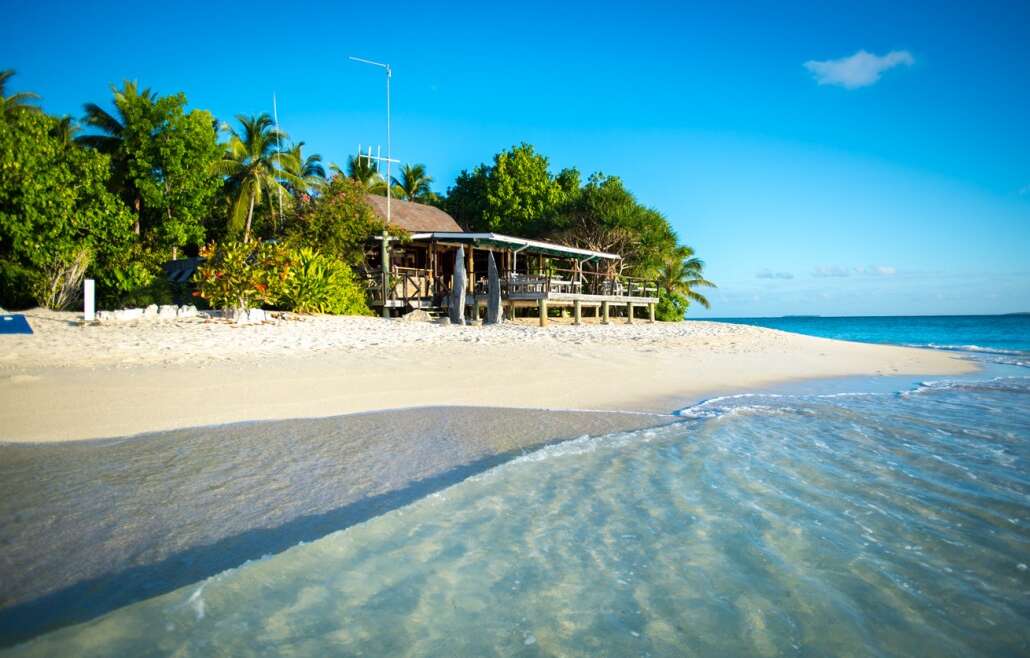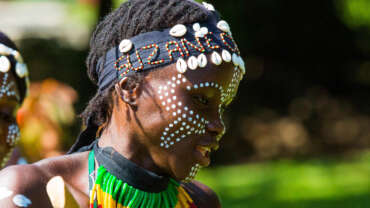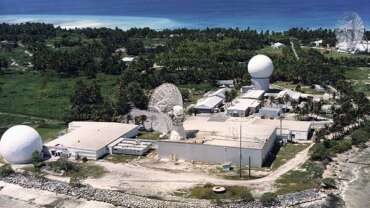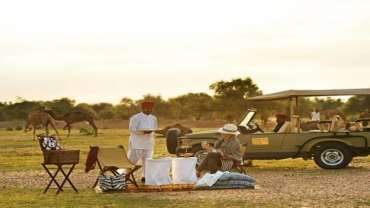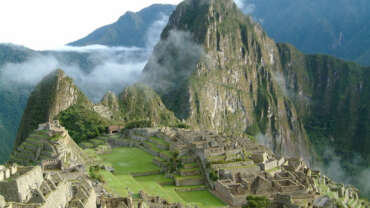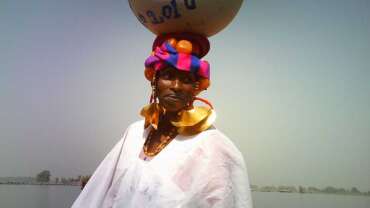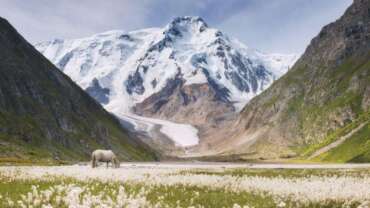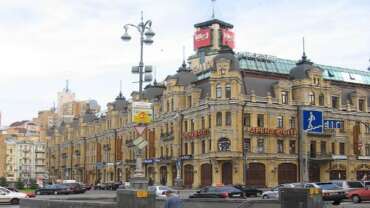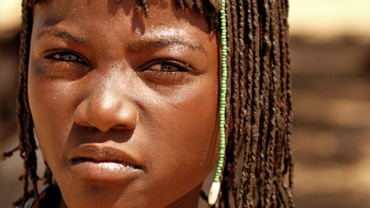Welcome to Tonga!
Despite embracing many elements of the contemporary world, Tongans still proudly retain their authentic culture and traditions. Couple this with a Polynesian monarchy that dates back many centuries, and you have a country that remains as close to the ‘true’ Polynesia as you’re likely to find.
Many Tongans still live in village communities following traditional customs, especially on the outer islands. The distinctive traditional dress ‘ta’ovala’ – woven waist mats – are commonly worn. Meat and vegetables are still cooked in an underground oven called the ‘Umu’. The ceremonial tradition of kava drinking, the traditional Polynesian drink, is very much a part of the Tongan lifestyle.
Tonga has remained true to its ancestral roots, partly because it is the only Pacific Island nation never colonised by a foreign power, and uniquely because it has also never lost its indigenous governance. After 1000 years of rule, Today’s monarchy and its structure still remain the most powerful and influential entity in Tonga. Tongatapu’s stone trillithon, gateway Ha’amoga ‘A Maui, dating back many centuries, stands as a powerful reminder of the legacy of this ancient and proud royal culture.
In more recent times, Tonga has also been strongly influenced by Christianity and now probably boasts more churches per head of population than anywhere else on earth. The islands resonate with hymns and harmonies every Sunday, a day of rest by law on the islands, and visitors are welcome to attend the services. Many do and leave with special memories of the experience.
Tongan arts and handicrafts, including bone carving, wood carving, basket making and fine weaving are made using techniques passed down through generations of Tongan craftspeople, are displayed everywhere too. Readily available at stalls and markets all over the islands, they make beautiful keepsakes to remind travellers of time spent here. One of the most famous local craft is the making of Tapa, a decorative bark cloth painted with traditional symbols and designs. Tapa is usually offered as a gift of respect at weddings, births and funerals.
Another vibrant and colourful experience for many visitors to Tonga is the graceful and dignified dancing of the Kingdom. Dancers step their feet and move their arms gracefully (women) and vigorously (men), complemented by traditional wear, beautiful bracelets, neck garlands and the tekiteki (a feather headpiece), creating another memorable expression of local culture and tradition.
History of Tonga
Tonga was first inhabited about 3,000 years ago by Austronesian-speaking people of the Lapita culture, best known from their elaborately decorated pottery. From at least the 10th century CE Tonga was ruled by a line of sacred kings and queens, the Tu‘i Tonga. About 1470 the reigning Tu‘i Tonga transferred his temporal powers to his brother under the title of Tu‘i Ha‘a Takalaua. A similar transfer of power about 1600 resulted in the creation of a third line of monarchs, the Tu‘i Kanokupolu, who eventually became the rulers.
Although some islands were visited by the Dutch navigators Jakob Le Maire and Abel Janszoon Tasman in 1616 and 1643, respectively, effective European contact dates from Capt. James Cook’s visits between 1773 and 1777. Cook called the Tonga islands the Friendly Islands, because the native inhabitants provided him with necessary supplies and gave him a warm welcome. The London Missionary Society and a mission of Methodists made unsuccessful attempts to introduce Christianity to Tonga in 1797 and 1822, respectively. A renewed attempt by the Methodist mission in 1826 was successful, and a Roman Catholic mission was established by the Marists in 1842.
Between 1799 and 1852 Tonga went through a period of war and disorder. This was finally ended by Taufa‘ahau, who was converted to Christianity in 1831 by the Methodist missionaries. He became Tu‘i Kanokupolu and subsequently took the title King George Tupou I in 1845. During the king’s long reign (1845–93), Tonga became a unified and independent country with a modern constitution (1875), legal code, and administrative structure. With Taufa‘ahau as its most important convert, Christianity spread rapidly. In separate treaties, Germany (1876), Great Britain (1879), and the United States (1888) recognized Tonga’s independence.
George I was succeeded by his great-grandson George II, who died in 1918. During his reign the kingdom became a British protectorate (1900) to discourage German advances. Under the treaty with Great Britain (amended in 1905), Tonga agreed to conduct all foreign affairs through a British consul, who had veto power over Tonga’s foreign policy and finances. George II was followed by Queen Salote Tupou III, who ruled from 1918 to 1965. She was succeeded upon her death in 1965 by her son Prince Tupouto‘a Tungi, who had been Tonga’s prime minister since 1949. He ruled as King Taufa‘ahau Tupou IV.
In 1970 Tonga regained full control of domestic and foreign affairs and became a fully independent nation within the Commonwealth. A pro-democracy movement took shape in the late 20th century, and, from the 1990s, reform advocates won significant representation in the legislature. The government, however, resisted change. Pro-democracy leaders, including ‘Akilisi Pohiva, a member of the legislature, were occasionally arrested and imprisoned.
From 1983 to 1991, despite domestic and international objections, the government sold some 6,600 Tongan passports to foreign nationals. The revenue from the sale—purportedly some $30 million—was invested in a trust fund that in the late 1990s came under the control of an American businessman, Jesse Bogdanoff. However, by 2001 the fund had lost nearly its entire value to risky investments; a Tongan lawsuit against Bogdanoff in U.S. courts was settled in 2004 for only a fraction of the loss.
As the reform movement gained momentum, some in the legislature and in the royal family were sympathetic. The government, however, responded by attempting to further solidify its authority. In 1999 the first indigenous broadcast television service, government-owned Television Tonga, was established. A newspaper critical of the government and the monarchy, Taimi ‘o Tonga, was banned at various times for allegedly being seditious. The legislature amended the constitution in 2003 to increase governmental control over the media, despite an earlier large-scale public demonstration in Nuku‘alofa against the changes; the Supreme Court later invalidated the amendments. From July to September 2005, in the first national strike in the country’s history, thousands of public service workers struck successfully for greater pay equity.
The country’s first non-noble prime minister, Feleti (Fred) Sevele, was appointed in March 2006. In September, King Taufa‘ahau Tupou IV died and was succeeded by Crown Prince Tupouto‘a, who ruled as King George (Siaosi) Tupou V. Later that month a National Committee for Political Reform, whose formation had been approved by King Taufa‘ahau Tupou IV, made its report to the legislature. Its recommendations included reducing the size of the Fale Alea and increasing the number of seats for popularly elected representatives. The Fale Alea passed an amended version, which was to take effect within the next several years; following the vote, a demonstration by pro-democracy protesters turned into a riot that went on for several weeks. Arson destroyed most of the capital’s business district and left seven people dead; hundreds were arrested. Troops were called in from New Zealand and Australia to reestablish peace.
Following his accession to the throne, King George Tupou V began divesting himself of ownership in many of the state assets that constituted much of the wealth of the monarchy. That process was completed prior to his coronation in August 2008. At the same time, the king announced the cession of much of the monarchy’s absolute power; henceforth, most of the monarch’s governmental decisions, except those relating to the judiciary, were to be made in consultation with the prime minister.
The pro-democracy movement made a strong showing in the November 2010 elections to the Fale Alea. The Democratic Party, led by Pohiva, won 12 of the 17 contested seats, although they were not enough to allow the party to form an outright majority. The other five elected seats were won by independents, who in December joined with the nine nobles to elect a noble, Tu‘ivakano, rather than a commoner, as prime minister.
On September 29, 2009, an undersea earthquake of magnitude 8.3 in the Pacific Ocean, centred some 120 miles (190 km) to the northeast of the island of Niuatoputapu, generated a tsunami that reached Tonga. Approximately 10 people were killed on the island, and a number of villages were destroyed.
People of Tonga
Nearly the entire population is of Polynesian ancestry. Tongans are closely related to Samoans and other Polynesians in culture and language as well as in genetic heritage. There is also a small amount of Melanesian influence through contact with Fiji. Intermarriage with Europeans has become more common, especially as a result of the increasing out-migration of Tongans since the 1970s.
Religion is an important aspect of Tongan society, and most Tongan families are members of a Christian church. About one-third of Tongans belong to the Free Wesleyan (Methodist) Church; nearly one-fifth are Mormons; and there are smaller but significant proportions of Roman Catholics and members of the Free Church of Tonga. The remainder belong to smaller, mostly Protestant, denominations. The Tongan language is taught in primary schools and is the official language, in addition to English, which is studied as a second language.
Most of the Tongan population lives in the three major island groups, and nearly three-fourths live on Tongatapu Island. The urban population has been steadily growing and now accounts for about one-third of the total population. Many Tongans migrate overseas, in particular to the United States and New Zealand. The majority of the population lives in villages. Traditional structures are called fale; they are rectangular in shape and have thatched or corrugated tin roofs and sides made of woven coconut leaves, reeds, or timber. Some Tongans reside in South Seas colonial-style wooden homes with gingerbread trim and exterior walls in pastel shades.
Nukuʿalofa has all the amenities of a capital city. It is also a major port of entry and has several wharves and piers. Much of Nukuʿalofa’s economic activity revolves around coconuts and coconut products. Other ports and commercial centres are Neiafu in the Vavaʿu Group and Pangai in the Haʿapai Group.
Cultural Life of Tonga
Although Western influence has somewhat altered traditions and culture in Tonga, certain Tongan rituals and art forms survive. For example, Tonga shares with Fiji, Samoa, and parts of French Polynesia the elaborate ritual surrounding the drinking of kava. The drink, prepared from the root of a pepper plant, has the properties of a mild narcotic. Carving was traditionally done by men, but the craftsmanship was inferior to that of other Polynesians, such as the Maori of New Zealand. Carving and other traditional crafts of higher quality have been produced, however, in response to the demands of the tourist market. Women manufacture tapa cloth from bark and weave mats and baskets from several varieties of pandanus leaves.
Traditional dancing is an important part of national ceremonies and local village festivities. In the popular paddle dance, called meʿetuʿupaki, dancers carry paddle-shaped boards painted or carved with abstractions of the human body. Other popular dances include the kailao, a war dance; the lakalaka and the maʿuluʿulu, dances performed by standing and seated groups, respectively, and accompanied by densely polyphonic singing; and the tauʿolunga, an individual dance accompanied by singing. An oral tradition persists in Tongan villages in the form of proverbs, religious epics, genealogies, poetry, fables, and myths.
Tonga - Friendly Islands!
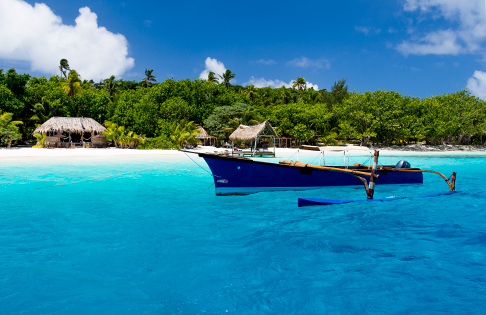
The Kingdom of Tonga is known as the Friendly Islands. With 176 islands to explore, you will be spoiled for choice in the Kingdom of Tonga. Only 40 islands are inhabited, so it is easy to imagine yourself on one of the deserted islands and become friends with the local sea life.
Tonga is made up of four major island groups: Tongatapu and ‘Eua in the south, Ha’apai group in the centre and Vava’u group in the north, each have their own flavour. Further north you will find Niua Fo’ou and Niuatoputapu, two islands that make up the Niuas island group. Tonga is a unique Polynesian Kingdom where the King and his Royal Family and Nobles are similar to many European Monarchies.
Tonga’s motto is “Ko e ‘Otua mo Tonga ko hoku tofi’a”, “God and Tonga are my Inheritance”.
Come to Tonga for a truly relaxing holiday and experience the true South Pacific.



